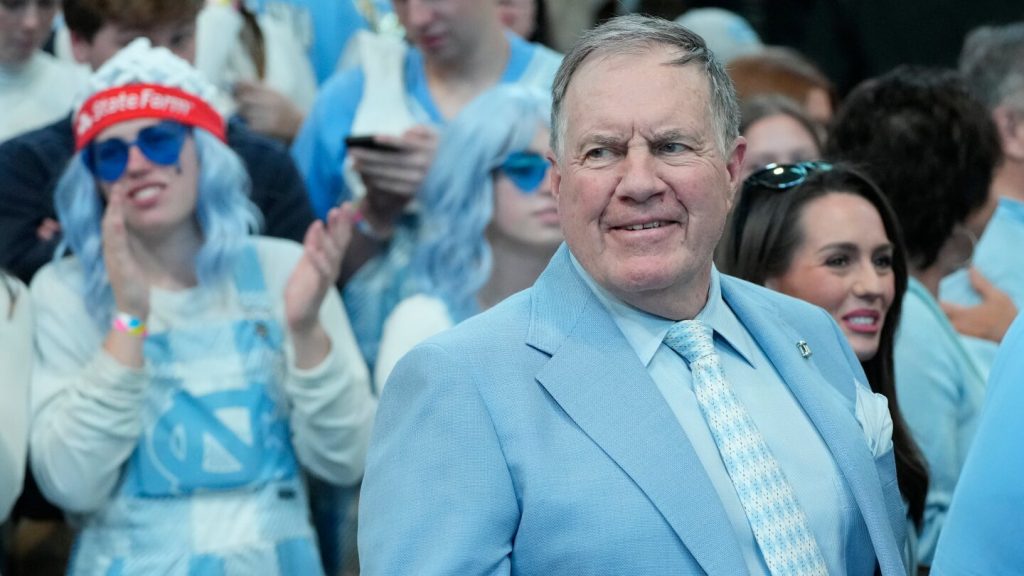UNC’s Spring Football Season and Revising History
This spring football season at North Carolina is also sparking a wave of revisionist narratives. Mike Lombardi, the General Manager and advisor for UNC, shared insights on the potential collaboration with NFL Films for Hard Knocks featuring the Tar Heels and their new coach, Bill Belichick. A recap of events reveals that on February 28, Ryan Glasspiegel from FrontOfficeSports.com announced that the offseason edition of Hard Knocks was confirmed to spotlight North Carolina. On the same day, Jonathan Jones from CBSSports.com noted that the agreement was finalized and merely awaited signature.
However, Lombardi now presents an alternative account, claiming that an agreement with NFL Films was impossible because UNC desired a series that would cover not only the offseason and preseason but the entirety of the 2025 football season. Lombardi expressed to McAfee on March 19, “The concern was that we want to control the narrative. The story we wish to articulate doesn’t end after the Labor Day game against TCU, but rather focuses on rebuilding the program and honoring past players to reinvigorate Tar Heel football on Saturdays.”
This raises the question: If this was their primary concern, why engage NFL Films at all? It’s unlikely the NFL would grant North Carolina all three segments of Hard Knocks for 2026, as Lombardi asserts Belichick and UNC sought. If Lombardi’s claim holds any truth—despite his earlier declaration that “it’s lying season” in the NFL—it calls into question the rationale for pursuing any discussions with NFL Films about the offseason version of Hard Knocks.
Reportedly, numerous owners expressed dissatisfaction with the idea of NFL Films granting North Carolina and Belichick a platform for promotion, citing potential “creative control” issues. Additionally, accusations surfaced about someone close to Belichick expecting to play an excessively active role in producing the show. However, there has been no evidence indicating that the breakdown in negotiations stemmed from UNC wanting all three segments: offseason, preseason, and in-season Hard Knocks.
Lombardi’s current narrative claims that UNC aimed for a comprehensive coverage, and he remains steadfast in this assertion. Responses to other explanations for the negotiations’ failure seem more focused on discrediting critics rather than addressing the underlying issues. Lombardi remarked, “There has been a lot of misinformation from individuals who run websites and don’t have credible sources.” Ironically, this sentiment comes from someone whose assertions could be challenged based on previously unverified claims about UNC’s apprehensions regarding Belichick’s potential departures to the NFL.
Regardless of accuracy, Lombardi is determined to frame the messaging. He acknowledges that UNC’s desired documentary reflects an infomercial built to attract recruits, generate funding, and promote the Tar Heels program overall. “What story do we want to tell?” he said. “We need a full narrative of our year, and we will continue to discuss telling that story,” emphasizing the need to sell the program to fans, recruits, and alumni alike.
Ultimately, Lombardi’s priority lies in the message, even at the expense of truth. His portrayal of UNC’s desire for an all-encompassing infomercial attempts to rationalize the collapse in negotiations with NFL Films, aiming to portray UNC football favorably. This circumstance suggests Lombardi’s focus on communication can be likened to famous legal scholar Vincent LaGuardia Gambini’s notion—it doesn’t matter if his words reflect reality; the emphasis is solely on the messaging, leaving common sense on the sidelines.



